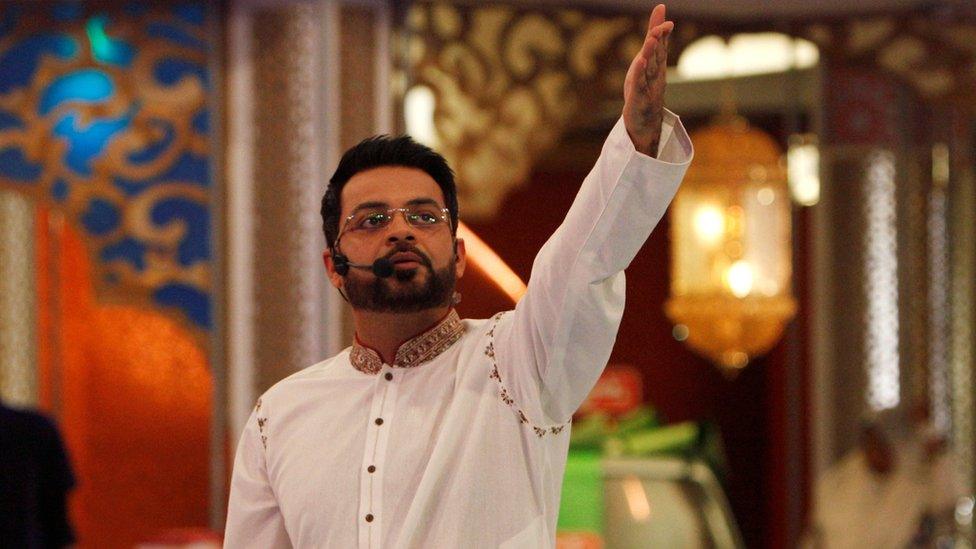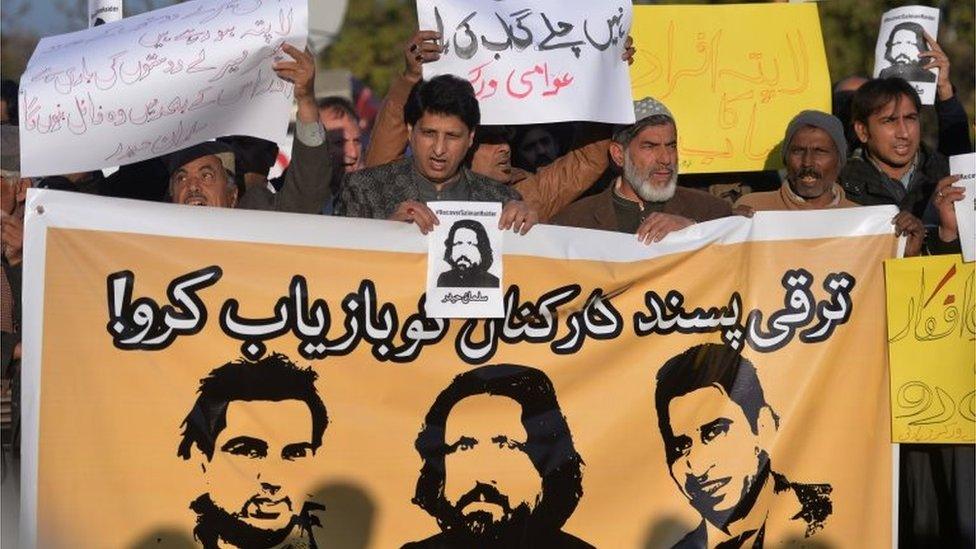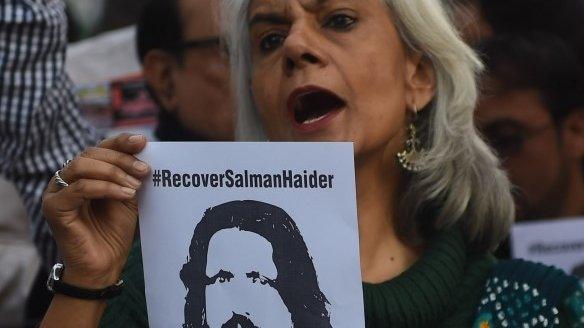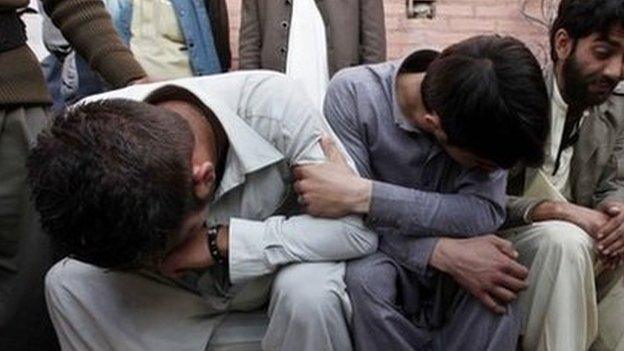Pakistan bans TV host Aamir Liaquat Hussain over 'hate speech'
- Published

Religious broadcaster Aamir Liaquat Hussain is a controversial figure in Pakistan
Pakistan's media regulator has banned a high-profile television host after accusing him of hate speech that could put lives at risk.
Aamir Liaquat Hussain had accused five missing liberal activists and their supporters of blasphemy.
Such allegations can incite murder in Pakistan where blasphemy is a crime that can result in the death penalty.
The regulator's decision to ban the controversial religious broadcaster takes place "with immediate effect".
Aamir Liaquat, who describes his programme Aisay Nahi Chalega (This is Not Acceptable) as Pakistan's leading TV show, publicly criticised the five liberal bloggers who mysteriously disappeared earlier this month.
All had aired views critical of the military or militancy on social media. No group has said it is holding them.

Read more

The regulating body, Pakistan Electronic Media Authority (Pemra), said it had received "hundreds" of complaints about the show aired on Bol TV, and made the decision to ban Aamir Liaquat after monitoring his programme for several weeks.
In a document sent to Bol TV, Pemra said that Aamir Liaquat "wilfully and repeatedly made statements and allegations which [are] tantamount to hate speech", adding that his remarks incited "violence against citizens", Reuters news agency reports.
Aamir Liaquat was told he was prohibited from appearing on the channel "in any manner".
His allegations against the activist bloggers are serious as the mere suspicion of blasphemy can evoke a strong reaction from a section of organised religion in Pakistan, with victims being attacked and in some cases lynched by angry mobs.

Hosting abuse - Analysis by the BBC's Ilyas Khan in Islamabad
The ban on Aamir Liaquat's appearance on TV comes in the wake of a hail of protests from individuals who have been accused by the controversial televangelist of blasphemy, treachery and fornication. The broadcaster has been levelling these accusations by name, and publicly in his programme.
For example, in a recent programme he claimed that the five "missing" social media activists who are widely believed to have been detained by secret agencies have actually "defected to India". He also passed some virulently sexist remarks about a number of liberal women who have distinguished themselves as artists, authors, researchers and human rights activists.
And he has tended to be abusive. In one recent programme he accused a senior journalist of having an extramarital affair and challenged him to contradict this if he was "the true son of his [legal] father".


Prominent civil rights activist Jibran Nasir, who has spearheaded demonstrations over the missing bloggers, tweeted that Pemra had done "its job", adding: "We can rejoice when the missing come back home."
The disappearance of the five bloggers, who were reported missing from various cities in Pakistan earlier this month, raised fears of a crackdown on free speech in the country.
Bol TV was told by Pemra to comply with its ruling and ban Aamir Liaquat from broadcasts or face losing its licence.

No stranger to controversy

Aamir Liaquat, a former lawmaker, was criticised in 2013 for handing out babies to childless couples during a live TV broadcast.
He insisted at the time that the move was aimed at saving abandoned infants and was not simply an attempt to boost his ratings.
Aamir Liaquat, who describes himself as "truly a legend" on his website, said: "We were already top of the ratings before we gave away a baby. We took these children from the garbage, from the trash, and delivered them to the needy people."
In September 2008, Aamir Liaqat dedicated an entire programme to exploring the beliefs of the Ahmadis, a sect who identify themselves as Muslim and follow the teachings of the Koran but are regarded by orthodox Muslims as heretical.
In it, two scholars said that anyone who associated with false prophets was "worthy of murder".
Within 24 hours of the broadcast, a prominent member of the Ahmadi community was shot dead in the small town of Mirpur Khas.
- Published10 January 2017

- Published20 May 2015

- Published14 July 2012
